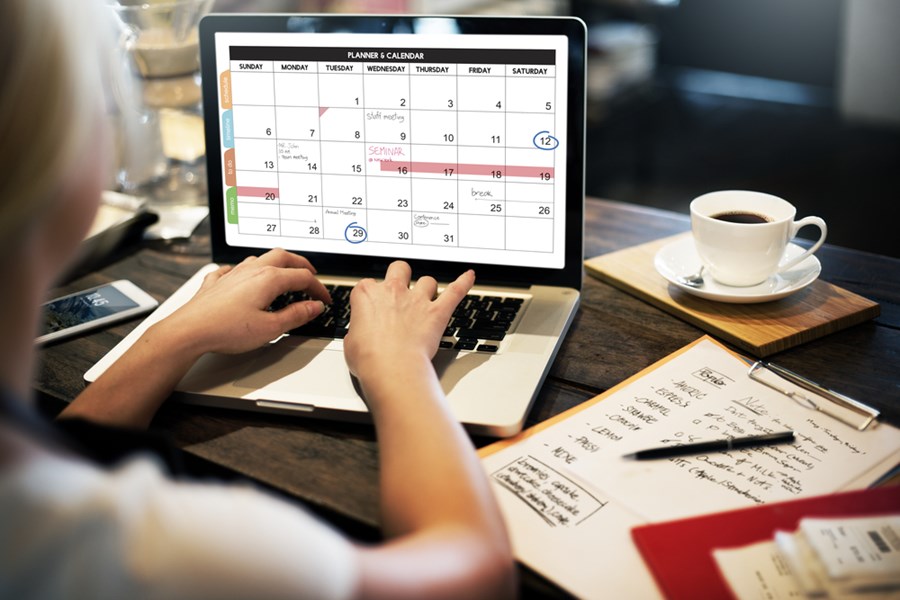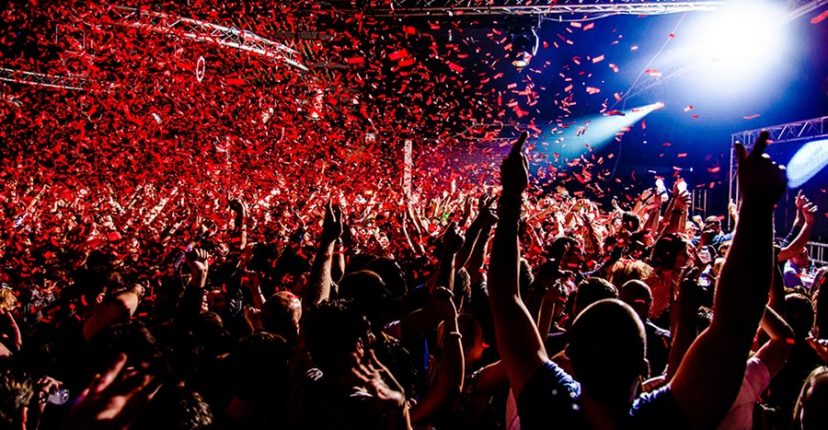Checklists will of course look very different depending on the type of event being arranged. The following is an example of what a checklist can look like. You may want to use it for inspiration when writing your own checklist. No event is the same as another and you might need to delete some of the points. But, above all – you will need to add a whole lot more!
Write a detailed running schedule
An event without a running schedule is doomed to failure. But also remember that most running schedules are doomed to failure. The latter, however, is not a problem if you make sure you are prepared for it. The running schedule should indicate who is responsible for what and how they should act. All times are listed here, but remember that they will probably not be kept to in full – and be prepared for it.
Do a “general rehearsal”
Gather everyone involved on the day before the event. Simulate the day in condensed form and try to follow your timetable (because you have, of course, drawn one up). During all of this rehearsal you should be aware that times can be changed during the day. Be sure to have a “plan B” if times are not kept to. Let everyone’s views be heard about what they think works well and what doesn’t work well in the event.
Decide on a hierarchy
Compare your event staff to a task force or a group of commandos. An event (just like a police operation) is an occasion where a lot happens in a short time. In this kind of operation, everyone must know what to do and who has the last word. Hierarchy is important on these occasions. Agree on who is ultimately responsible for the event. Make a ranking of who comes where in the giving of orders.
Facilitate communication between those involved
During the event it is important that the channels of communication between everyone who has responsibilities are good. For larger events a communications radio (like a walkie-talkie) can be handy for giving orders. For smaller events it might feel slightly ridiculous running around with a communications radio. You can instead meet up at regular intervals during the event to check that everything is proceeding as it should.
Programme for the guests
Event guests usually want a programme to follow. They want to know what times apply. Make a programme containing the most important points. This does not need to be as detailed as your internal running schedule, of course – just the main features of the event. Remember that the times you specify there are the most important to keep to. This programme can be included with the invitation you send.
Make sure the venue issue is resolved early
Venues are always a weak point in event planning. Make sure that this point is resolved early and book a long way in advance. Be as realistic as possible in the choice of venue. It must neither be too big nor too small for your event. Not so easy to foresee a year in advance – but do what you can.
Invitation
How far in advance should you send the invitation? Two months in advance is definitely not too early. Two weeks in advance is probably far too late. Get them out in good time so the guests can book it in their diaries while they are still relatively blank.
Be clear about any conditions in the invitation
Guests must be made aware of everything that is expected of them in the invitation. What is expected of them? How much will they pay for themselves and what is included? How should they be dressed? Should they prepare some form of presentation of themselves or the company they represent?
Online event invitations and RSVP
Reminder
Send out at least one reminder after you have sent the invitation. It should not be the same invitation all over again. That feels like nagging and will bore the recipient. It is better to spend some time on the reminder and make it welcoming.
Who is the contact person?
It is important to appoint a person that attendees can contact with questions before, during and after the event. It is good if only one person has responsibility for this. A person who has comprehensive knowledge of the entire event and not only a part of it. This person should also be fully aware of who is responsible for what, in order to be able to forward the questions to the right person.
Are all the permits in place?
Depending on the size of the event, there may be different licensing requirements. Does the venue have the required fire rating for all your attendees? Do you need to obtain permits from the emergency services? Is police authorisation required? Do you need to do something about the traffic situation outside the venue? What kind of permit is needed there?
Maps and signage
Even though we live in the age of GPS, many people still depend on road directions, maps and signs. Attach some short directions or a map to your invitation. Arrange the signs to the venue in good time. Ask someone to test drive the route to ensure that the signs are in order.
Food
As we have already mentioned, the food is one of the most important details of the event. Book a restaurateur early that you know is reliable and can be flexible about timings. The food must not be the disappointing detail that everyone talks about afterwards. Remember that restaurateurs are often booked up far in advance (particularly the reliable ones). As with the venue booking, you should arrange this well in advance.
Thank you and welcome back
We have also said that the results of your efforts will only be seen after the event. That is when business is done and that is when the buzz about you and your company happens. Be sure to give your attendees attention after the event, as well. Send a card thanking them for their participation, or invite them back to the same event next year. Anything that makes them feel noticed.




